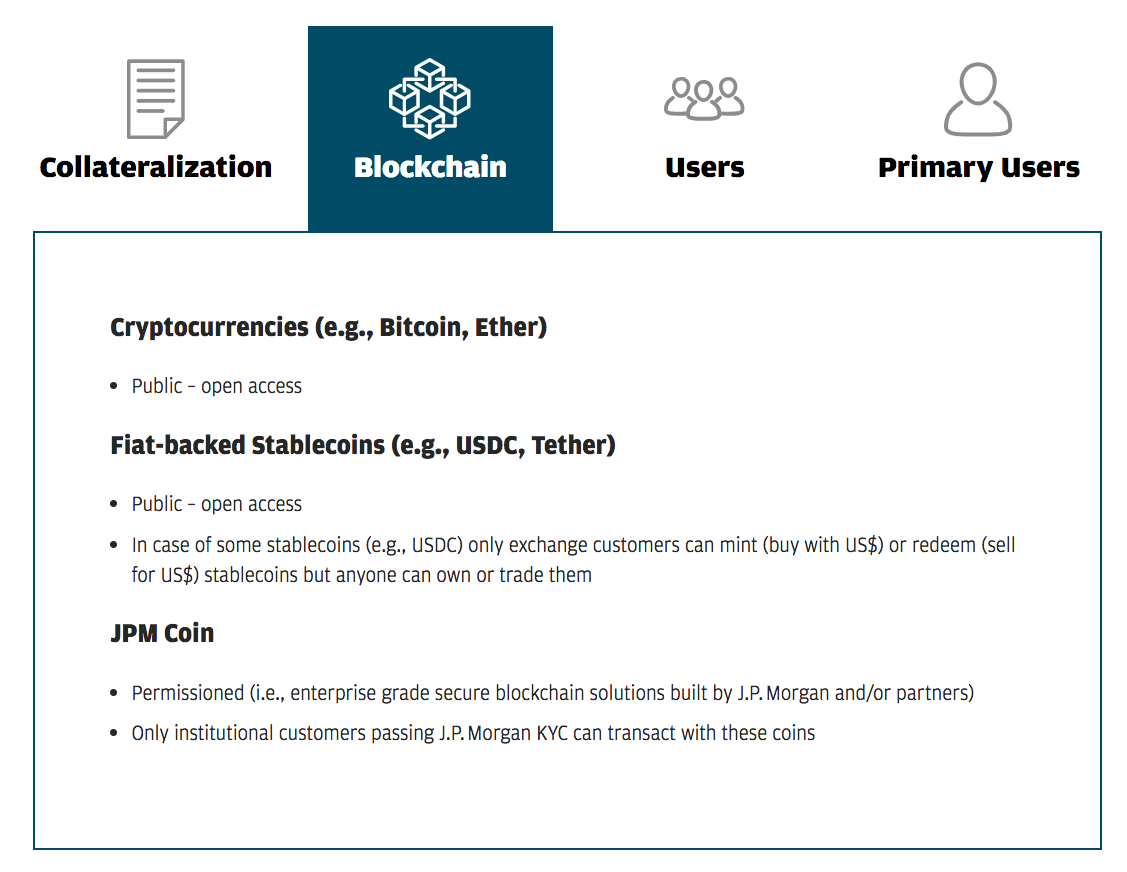Don’t Call JP Morgan Chase’s New ‘JPM Coin’ a Cryptocurrency
Bitcoin emerged from the tumult of the 2008 financial crisis as a way to wrest control of money away from big banks and the government. Now, the largest bank in the US is launching a digital token using blockchain technology inspired by that which underpins Bitcoin.
JP Morgan Chase's JPM Coin is a digital token that represents US dollars held in JP Morgan Chase accounts, according to the bank. The token is aimed at large, institutional clients that need to move large sums of money quickly. Using a digital token that is sent and logged near-instantly in a database would allow for clients to send payments without waiting for wire transfers which, as CNBC noted, might take more than a day to settle.
The news that the largest bank in the US is adopting some technical aspects of cryptocurrencies like Bitcoin and Ethereum-a blockchain that came after Bitcoin and iterated on it-was not met with the jubilation one might expect of cryptocurrency enthusiasts. Instead, JPM Coin has been cast by some as a co-option or even an attack of sorts on cryptocurrencies. Jamie Dimon, CEO of JPMorgan Chase, famously called Bitcoin a "fraud" in 2017, though the bank has long touted the supposed benefits of blockchain technology.
Another contingent of cryptocurrency observers, though, is nonplussed about JPM Coin for another reason entirely-it's not a cryptocurrency at all. If a naive person was scanning news headlines about JPM Coin, they might understandably come away with the impression that JP Morgan Chase was launching something comparable to Bitcoin.
"If JPM Coin is a cryptocurrency, then Facebook credits and World of Warcraft money are cryptocurrencies," Jerry Brito, executive director of DC-based policy research and advocacy group Coin Center, told me over the phone.
The sticking point is that most cryptocurrencies-like Bitcoin, Ethereum, or Monero-aim for decentralized control of the network, with many disparate computers working together to agree on the state of the shared ledger that keeps track of everybody's money (the blockchain). These networks are public in the sense that anybody can join in without asking for permission. And in the case of Bitcoin, more computers joining the network improves the system's overall security.
JPM Coin, in contrast, runs on a "permissioned" blockchain called Quorum with limited participants that must first be approved by JP Morgan Chase.
"It's the same distinction between AOL and the internet," Brito said. "The internet is open, so anybody who wants to create a blog, website, or consumer service can connect a server to the network without asking permission from anybody. Compare that to AOL-it was a permissioned network where if you were a publisher, you had to go to the company and seek their permission."
This key difference also speaks to the divergent use-cases of Bitcoin and JPM Coin. For folks who believe that Bitcoin is best suited to serve as money, its open and public nature is core to that mission. JPM Coin, on the other hand, is designed to settle internal transactions for institutional clients-it's not money that anybody and everybody can use.
 Screengrab: JP Morgan Chase
Screengrab: JP Morgan Chase As FT Alphaville's Jemima Kelly noted, a permissioned blockchain of the kind JPM Coin uses is essentially a database managed by its owner, JP Morgan Chase. Add to this the fact that the digital token simply represents money already, literally, in the bank, and one begins to wonder whether a blockchain by any definition is needed at all.
"In fact, some might argue JPM Coin already exists and that it's just a JPM deposit by another name," Kelly wrote.
Still, JP Morgan Chase is a financial juggernaut and counts many of the world's most profitable companies as clients. A new, faster settlement system may very well pay off. But right now, at least, it's not stepping on Bitcoin's turf.
"The fact that there is a bank making a new interbank settlement network really says nothing about Bitcoin, or impinge on Bitcoin's ability to develop," Brito said.
Get six of our favorite Motherboard stories every day by signing up for our newsletter.